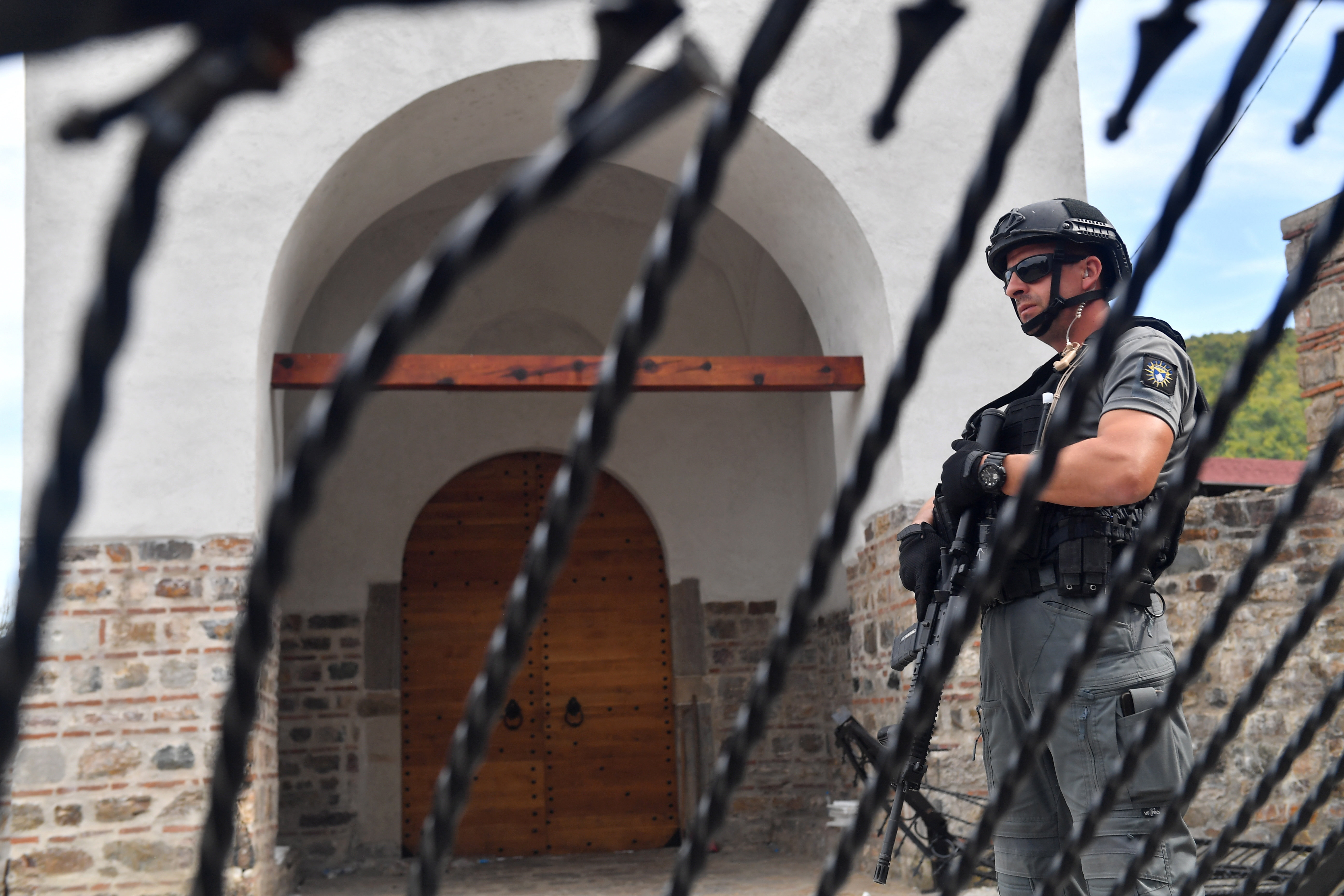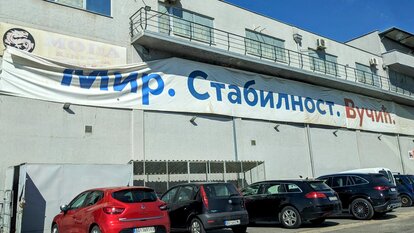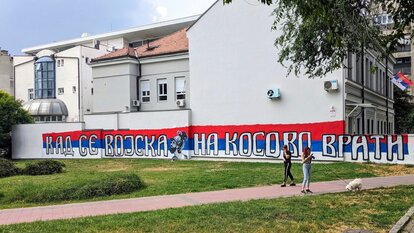Kosovo & Serbia
Playing with fire

When a Kosovar police officer was shot dead by a Kosovo Serb militia in the north of the country early Sunday morning a week and a half ago, a chain of events began that briefly brought the Western Balkans to the brink of war. Although firm evidence is still lacking, the most likely version is that a Kosovo police patrol surprised some 30 criminal Serbs loading smuggled weapons. If the roadblock set up for this purpose from trucks had been a deliberately laid ambush to kill police officers, it would only make matters worse.
The incident resulted in hours of firefights between Kosovar security forces and the attackers, in which four Serbian fighters were killed. A huge arsenal of weapons, including weapons of war, was found in a nearby village. Moreover, a few days later it was confirmed that the vice president of the “Serb List”, a Belgrade-controlled Serb unity party in northern Kosovo, who was involved in organized crime, had led the militia.
Dubious Reaction from Belgrade
While the news of fighting in northern Kosovo went around the world and the Kosovar government was already talking about a “terrorist attack”, the citizens of Serbia heard about all this... nothing. The media, loyal to Serbian President Aleksander Vučić, did not dare to report on the incident, although Kosovo is otherwise the number one domestic political topic every day.
It was not until the evening that President Vučić personally addressed the Serbian people and gave the official line that Serbia had nothing to do with the incident. Rather, he said, Kosovar Prime Minister Albin Kurti was to blame. He said that the Serbs who were killed were “concerned family men” who wanted to counter the systematic terror of Kosovo Albanians against the Serbian-born population. Therefore, he said, he would declare a state day of mourning “because of what happened in Kosovo and Metohija.”
The fact that Serbia was mourning the death of members of a highly armed assassination squad was beyond the knowledge of most people. President Vučić had set the line, and the media and the church delivered: the people of Serbia learned nothing about the background of the crime in newspapers and TV news. Rather, the media reported that the Serbs killed had been loving family men, that the Kosovar police had been brutal and cold-blooded, and that “the West” was silently watching the “ethnic cleansing of the Serbs.” Outside of large churches, worshippers across the country were able to light candles for the shot criminals who had earlier killed an innocent policeman.

„Frieden. Stabilität. Vučić.“ Wobei der Frieden schief hängt.
Is Vučić playing with fire?
The international community condemned the act, as well as Serbia’s reaction to it. Manuel Sarrazin, the German government’s special representative for the Western Balkans, flew to Pristina on the day of the attack to prevent further escalation. Although the imposition of sanctions against Serbia was on the table, the European Union (EU), which had recently been tough on Kosovo, remained vague about possible consequences. Then, over the weekend, the United States and Germany called on Serbia to immediately reduce its troops on the Serbian-Kosovar border. In addition, Serbia briefly detained the previously celebrated “hero” Milan Radoičić, leader of the commando group and leading cadre of the “Serb List”, after he accepted all blame through his lawyer.
The distortion of facts and different messages for the domestic and international audience are Vučić’s specialty: Thus, the Serbian president announced on CNN that Serbia had not increased its troops at the demarcation line to Kosovo, but would “of course” withdraw them in the interest of peace. Serbia had no interest in escalation. On domestic television, in turn, he expressed the opinion that the West supported Kosovo’s policy, which is directed against the existence of Serbia and all Serbs. And Radoičić, the media told the Serbian people, had been arrested only because of inhuman pressure from the international community. Vučić, however, had, as always, brought out the best for Serbia and all Serbs
The Serbian president virtuously plays the nationalist keyboard: although the incident was triggered by Kosovo Serbs in northern Kosovo, which is de facto largely controlled by Belgrade, the Serbian president considers himself unjustly accused. In foreign policy terms, so is Vučić’s calculation, he can thus advance the agenda of gradually destabilizing Kosovo without having to take political responsibility for it. Domestically, he can distract attention from his miserable political record: Serbia remains one of the poorest countries in Europe; moreover, citizens have been demonstrating weekly for months against the pervasive violence within Serbian society. With self-initiated crises and their solutions, he gives the electorate the feeling that he is standing up for their interests, while further distancing Serbia from European values.
But this time Vučić may have overstepped the mark: parliamentary sources say that EU sanctions against the Serbian government are still on the table. However, EU embassies first want to gather irrefutable evidence that Serbian government officials had a hand in the commando action in northern Kosovo. Kosovo’s Prime Minister Kurti is keen to find evidence of Serbian involvement. Either way, the Serbian population is already convinced that they are being played dirty. And despite one of the biggest crises in years, Vučić’s domestic political standing is still dazzling.
Markus Kaiser is the head of office of the Friedrich Naumann Foundation for Freedom for the Western Balkans based in Belgrade

Eins von dutzenden „Wenn die Armee in den Kosovo zurückkehrt“-Graffiti in Belgrad
